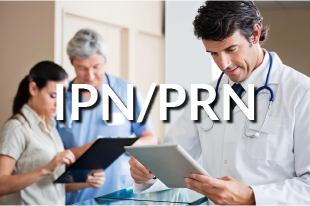The heart plays a crucial role in the human body. It’s vital for pumping blood through the body, delivering oxygen and nutrients to cells, and maintaining the function of the whole circulatory system. So, it’s absolutely essential for your heart to function properly.
But, alcohol abuse can put this vital organ at significant risk. Excessive alcohol consumption can have a detrimental effect on your heart. One of the long-term effects of alcohol addiction is the development of heart disease. Below are some ways alcohol negatively affects the heart. It’s important to be aware of the risks of alcohol to your heart before it causes irreversible damage.
Is Alcohol Bad for Your Heart?
In short, yes, alcohol is bad for your heart. The more heavily you consume alcohol, the worse impact it can have. Binge drinkers are at the greatest risk for experiencing heart problems related to drinking alcohol. Older adults addicted to alcohol are also at high risk of heart issues due to the natural effects of aging on the body. Additionally, individuals with pre-existing heart conditions should avoid drinking alcohol altogether.
Alcohol puts your heart at risk for heart disease, high blood pressure, stroke, irregular heart rhythms (arrhythmias), fetal alcohol syndrome, cancer, and other serious health issues. The level of risk varies from person to person and depends on factors such as pre-existing conditions, age, and level of consumption.
If you or someone you know has experienced heart-related issues due to drinking, seek medical attention immediately. The heart is a vital organ, and its proper functioning is essential for survival.
Does Alcohol Increase Heart Rate?
Alcohol can both slow and increase the heart rate. Changes to heart rate can cause serious issues both short-term and long-term. If someone is experiencing an increase or decrease in heart rate when drinking, they should stop drinking immediately.
On the slow side, alcohol causes the brain’s control over the body to slow down. This can lead to a slower heart rate and also slower breathing. If the heart rate gets too low, it can become dangerous.
Alcohol increases heart rate and can even cause heart palpitations when blood vessels expand, reducing the blood pressure. Vasodilation occurs when the blood vessels widen due to the relaxation of muscle in their walls. Increased heart rate can lead to worse problems like heart attacks. If someone is experiencing increased heart rate or heart palpitations from drinking, they should stop immediately and even drink water to rehydrate their body.
Alcohol and Heart Disease
Plenty of studies have shown a link between alcohol and heart disease. Heavy drinkers and long-term alcohol abusers are especially susceptible to heart disease. In addition, there is also a raised risk of heart disease in women who drink alcohol, even without binge drinking. Heart disease includes coronary heart disease, in which the arteries supplying blood to the heart narrow and limit blood flow. This can put an individual at higher risk of experiencing episodes of chest pain or even heart attacks.
When you quit drinking alcohol completely, the risk of heart disease greatly reduces. This has a lot to do with the immediate effects that alcohol has on the body as it’s still in the body. Those seeking treatment for alcohol abuse through a detox, inpatient, or outpatient program are greatly reducing their chances of experiencing heart disease and other heart-related issues.
Signs of Heart Disease from Alcohol
There are several signs of heart disease caused by alcohol that individuals should watch out for:
- Palpitations: when the heart feels like it’s fluttering or skipping beats
- Chest pain: or any chest discomfort – this could be related to arteries narrowing and limiting blood flow to the heart
- Shortness of breath: could be a sign of a heart issue or heart failure
- Swelling: in the legs, ankles, feet, or stomach could indicate a fluid buildup
- Heart murmur: a whooshing or swishing sound when listening to the heart with a stethoscope
- Fatigue, dizziness or fainting: could be a sign of reduced blood flow to the brain or reduced heart function
If you are experiencing any serious signs of heart disease, contact a medical professional immediately. It’s important to first address any immediate issues with the heart before seeking treatment for alcohol addiction from a detox, inpatient, or outpatient program.
Alcohol and Heart Problems
Alcohol can cause a slew of heart problems, especially through excessive alcohol consumption. These problems include:
- High blood pressure
- Cardiomyopathy
- Arrhythmias
- Heart failure
- Heart attack
- Stroke
- Cardiac arrest
- Atherosclerosis
The heavier an individual consumes alcohol, the more they are at risk for serious negative effects on the heart. If you or someone you love suffers from alcohol addiction, they are at greater risk for heart problems down the road. Contact Behavioral Health Centers to start a treatment program for alcohol addiction to help reduce the impact that alcohol can have on the heart.









